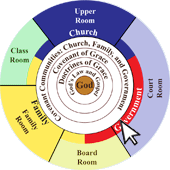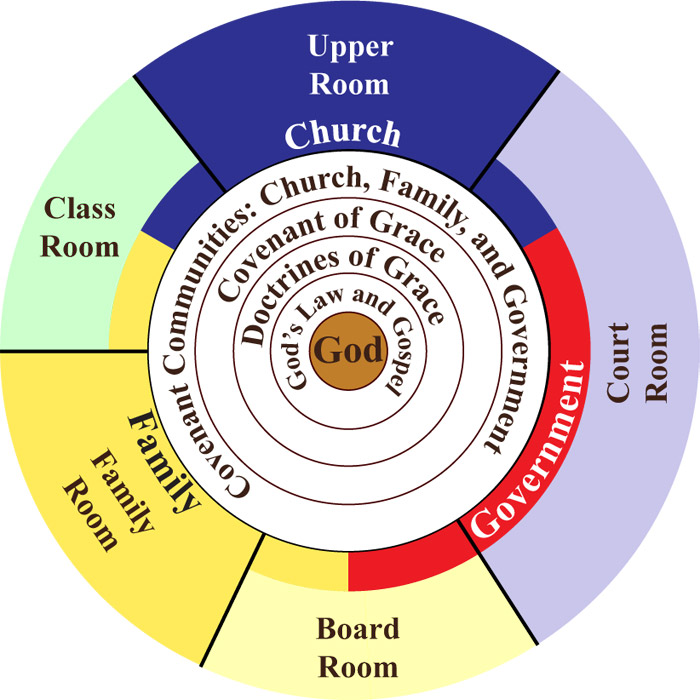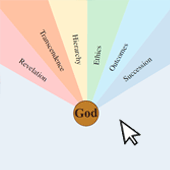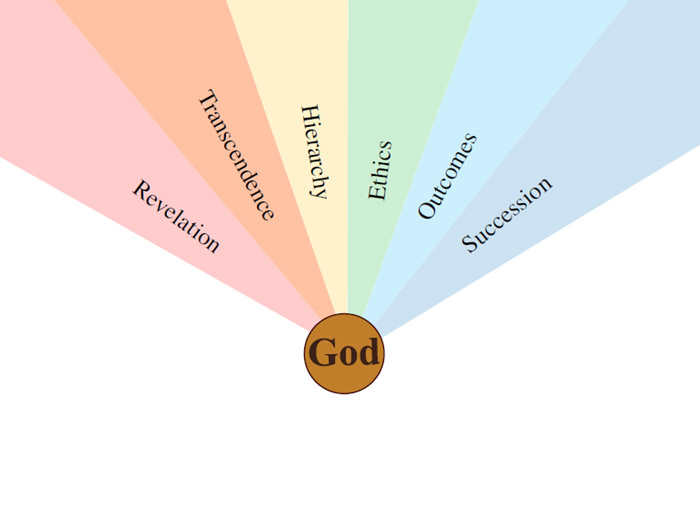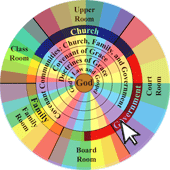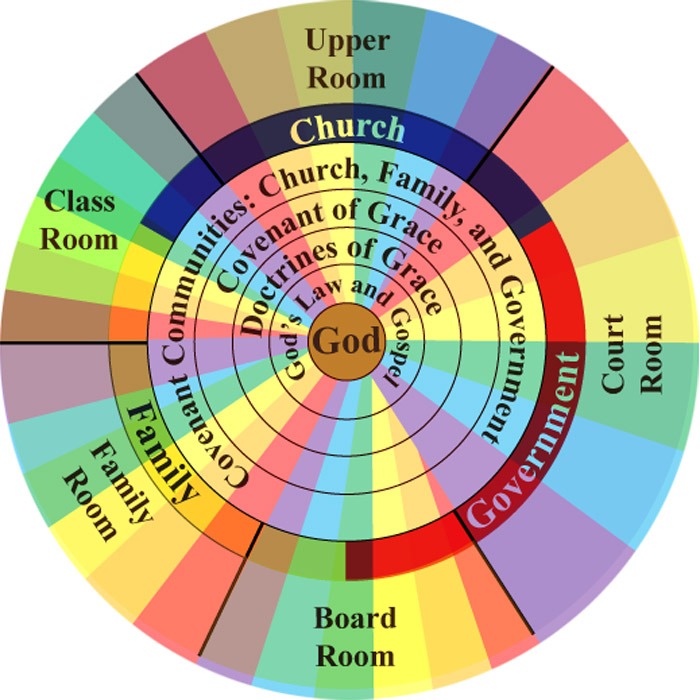Blessings Promised to People Who Uphold the Covenant
How Scriptural Covenants Explain the
Connection between God and His Promised Blessings
All God's ways are loving and faithful for those who keep the demands of His covenant. (Psalm 25:10). Across the centuries and around the world, God has lovingly blessed the faithful in covenant communities. As illustrated on the three images at the left, and as explained on this website, God wants us to know Him and faithfully reflect His character. This commitment to honoring God helps the believer experience divine love and blessings.
God’s blessings are very often experienced through a rich personal faith. Individuals come to know the Lord through worship, prayer, and Biblical preaching. As the faithful gather together in community, God extends His blessings through families, governments and churches.
The church has a critically important role raising up elders who oversee the church and help insure that the church is built on a doctrinally-sound understanding of God, the Gospel, the doctrine of grace, and the covenant of grace. Elders gather in the Upper Room to maintain the peace and purity of the church. This connection between the Upper Room and sound teaching is illustrated on the top diagram at the left.
As also indicated on the top diagram on the left, elders in the Upper Room have a close connection with the church as well as God’s two other primary covenant communities: the family and the government. When the family, government and church are all based on sound doctrine and overseen by qualified elders, these primary institutions can effectively support Christian peacemaking (in the "court room"), Christian family businesses (in the "board room"), Christian schools (in the classroom), and Christian families (in the "family room").
Covenant communities with the effective spiritual, judicial, commercial and educational systems in the rooms described above can rely upon the church, the family, and the government for support. For example, the peacemaking in the courtroom depends on support from the church and government. The education in the classroom depends on support from the church and family. The commercial activity in the business very often relies upon support from family and government. By maintaining these institutional relationships described in Scripture, Christian can see how God works through covenant communities to fulfill His promises.
Covenant communities display six visible elements, as descried in Scripture and as summarized with the six colored rings on the top chart at the right. God reveals Himself by providing- Abundant revelation and resources,
- Transcendent vision,
- Higher authority,
- Ethical standards,
- Blessings/curses, and a
- Succession plan.
Every covenant in Scripture and every covenantal institution reflects these 6 ideals. See more details are in the free book at www.Legacies.info. Appendix One of the book explains the dimensions of God’s character, as suggested by the second image on the left. Appendix Two explains how the six main dimensions of God’s character are reflected through the 3 institutions and five rooms illustrated on the bottom image on the left.
The images at the left illustrate the connection between healthy social institutions and the required theological foundations. Undergirding every covenantal institution is the Covenant of Grace. This is explained throughout classic orthodox teachings. For example, the Westminster Confession of Faith refers to the Covenant of Grace 29 times.
The Covenant of Grace is based on the Doctrines of Grace. These doctrines, otherwise known as the "Solas of the Reformation," are explained in the essays at http://BiblicalDisciples.com/ and http://BiblicalGrace.com. The endnotes references several books on the Doctrines of Grace
Knowing the Covenant of Grace and Doctrines of Grace leads us to a deeper understanding of the Gospel. In fact, we see how Christ is the covenant-keeping Messiah who keeps the demands of the covenant on behalf of the believer. By understanding how Christ keeps the covenant, we see how the covenant and the gospel are fully parallel concepts.
We are called to seek God through His covenantal teachings and His Covenantal institutions. This quest leads us closer to God. Knowing God helps us know the Christ of the covenants.
Conclusion:
God raises up elders who gather in the Upper Room and help maintain institutions that reflect God’s character. The elders encourage a deeper understanding of God, who is depicted at the center of the diagrams at the left. Radiating from God's essence are the doctrinal teachings that can help individuals and institutions realize promised blessings in the upper room, in the court room, in board rooms, in the family rooms, and in classrooms. As explained above, and as illustrated at the left, Scriptural covenants explain the connection between God and His promised spiritual, judicial, commercial, familial and educational blessings.
